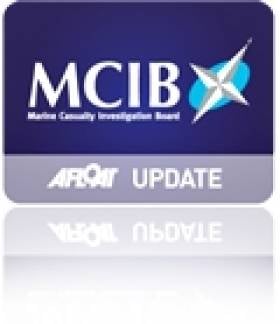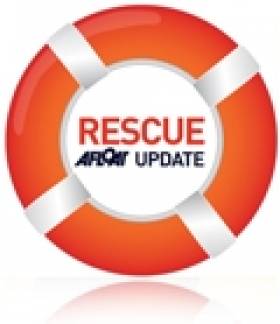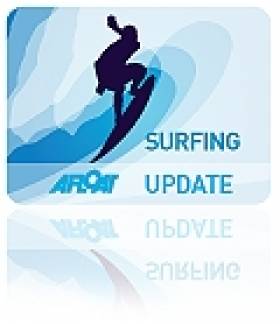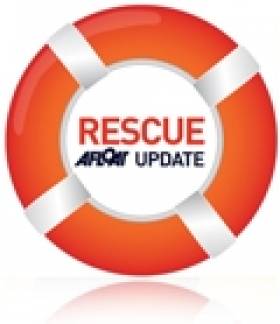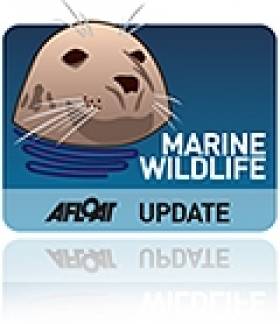Displaying items by tag: Co Waterford
Safety Advice for Leisure Boaters in MCIB's Helvick Head Report
#MCIB - The Marine Casualty Investigation Board (MCIB) has called for better safety awareness among leisure boat users in its report into the deaths of two men off Helvick Head in Co Waterford in May 2010.
John O'Brien and Pat Esmonde were lost overboard from their small RIB on 23 May 2010, and their remains were recovered two days later. Post-mortems confirmed that both died by drowning.
The report does not conclude exactly how the incident occurred. But accounts from eyewitnesses who sighted the men in the minutes before state that neither was wearing a lifejacket, despite the legal requirement to do so - and despite O'Brien having no seafaring experience and Esmonde being unable to swim, as confirmed by their families.
The MCIB also noted that while there were two lifejackets aboard the vessel, they were for emergencies and not suitable for constant wear as per the requirements for the vessel class.
Other safety issues highlighted include the kill-cord on the engine, which was not being used, and the fact that the initial distress call was made by mobile phone and not VHF radio.
Though neither had any bearing on this specific incident, the MCIB warned in particular that mobile phone calls are closed in nature, whereas VHF distress calls can be heard and answered by any vessel in the vicinity.
The board recommends that the Minister for Transport "undertakes a highly visible information poster campaign on piers and launching areas relating to lifejackets, VHF radio and emergency contact details" and also reminds boaters of their legal obligations.
The full report is available to download as a PDF from the MCIB website HERE.
Body of Tit Bonhomme Skipper Recovered
#NEWS UPDATE - RTÉ News reports that a body found in Glandore Harbour today is that of Tit Bonhomme skipper Michael Hayes.
The body of the 52-year-old from Helvick Head in Co Waterford, who went missing more than three weeks ago, was discovered floating close to the mouth of the harbour around lunchtime by his brother, Garda Chief Spt Tom Hayes, according to The Irish Times.
As previously reported on Afloat.ie, the search operation in Glandore is being wound down this week after the remains of three of the five missing crew were recovered. Egyptian crewman Said Mohammed (23) - also known as Saied Ali Eldin - is still missing.
The fishing vessel Tit Bonhomme ran aground and went down in rough seas near Adam's Rock, at the mouth of Glandore Harbour, on Sunday 15 January.
Only one crewmember, 43-year-old Abdul Mohammed, is confirmed alive after he was able to reach the shore.
Search Resumes for Missing Fishermen in West Cork
#RESCUE - The search resumed this morning for five men missing after their fishing boat went down in rough seas in West Cork early yesterday, The Irish Times reports.
One of the six-person crew of the Tit Bonhomme was rescued when he was able to reach the shore, after the boat ran aground near Adam's Rock at the mouth of Glandore Harbour.
The missing include skipper Michael Hayes from Helvic Head in Co Waterford, Dubliner Kevin Kershaw (21) and Egyptians Said Mohammed (23), Wael Mohammed (35) and Attea Ahmed Shaban (26).
Abdul Mohammed (43) was airlifted by Irish Coast Guard helicopter to Cork University Hospital, where he is in a stable condition.
As previously reported on Afloat.ie, the fishing boat was returning to its home port of Union Hall early on Sunday in strong force 7-8 southeasterly winds when the incident occurred.
Naval Service and Garda divers were scheduled to search the sunken vessel today after postponing yesterday due to poor light and big swells.
The Irish Times has more on the story HERE.
Tramore Surf Clubs Plans New Clubhouse and Training Centre
#SURFING - Tramore Surf Lifesaving Club is seeking planning permission for the development of a new clubhouse and national training centre on Tramore's promenade.
The state-of-the-art development would involve the completion of a three-storey ocean-themed building along the seafront, with club changing facilities and a shower area; rescue boat housing; an emergency first aid room; conference room; and a lifeguard area with an observation deck on the third floor.
The building would also incorporate the latest in renewable energy technologies to minimise the club's carbon footprint and tailoring our energy usage to our needs.
It is projected that the new clubhouse would also house Waterford County Council's beach lifeguards during the summer months, which will also allow for co-operation in relation to water safety and lifesaving skills.
Waterford Today has more on the surf club's proposals HERE.
Lost Irish Fishermen Found Safe and Sound Off Minehead
FOUR Irish fishermen reported missing on Sunday have been found in good spirits off the coast of Minehead in Somerset.
This Is The West Country reports that the four men had left Helvick harbour in Co Waterford early on Sunday on a fishing trip but got lost shortly thereafter.
After contacting the coastguard with their concerns, the Helvick Head RNLI lifeboat was dispatched to Minehead, where the lost boat had been found by another fishing vessel, Faoilean Ban.
The lost fishermen subseqently followed the Faoilean Ban back to port at Helvick.
Sperm Whale Dies on Dungarvan Beach
A sperm whale that beached on a sand spit in Dungarvan, Co Waterford on Friday has died.
The male whale had been spotted off the coast in the 24 hours before it was discovered 'live stranded' on Cunnigar Strand.
Rescuers said there was "no effective way" of refloating the 10+ metre long whale from what became its final resting place.
"Once they come this far inshore they are pretty much doomed," the Irish Whale and Dolphin Group's (IWDG) Pádraig Whooley told the Irish Examiner.
No decision has yet been made regarding disposal of the whale carcass, but Irish Weather Online quotes Whooley as saying it is "a wasted opportunity when these magnificent specimens are simply hauled off for incineration".


























